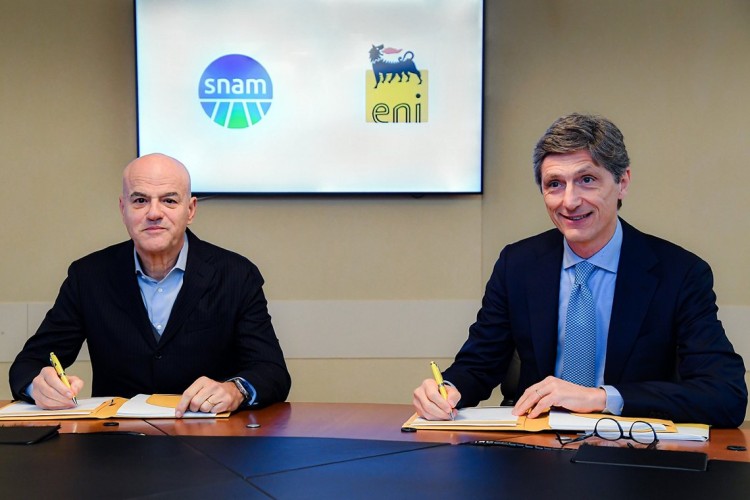Eni and Snam Launches Italy’s First Carbon Capture Storage Project, Targeting 4 Million Tonnes CO₂ by 2030

- Pioneering Project: Ravenna CCS is Italy’s first industrial-scale carbon capture and storage (CCS) initiative, designed to significantly reduce CO₂ emissions.
- High Efficiency: The project achieves over 90% carbon capture efficiency, marking a breakthrough in industrial decarbonization.
- Future Expansion: Plans are underway to expand the project to store up to 4 million tonnes of CO₂ per year by 2030.
Eni and Snam have launched Ravenna CCS, Italy’s first carbon capture and storage project, positioning it as a leading initiative in global carbon capture efforts. This project is a cornerstone in the European Union’s strategy to develop significant CO₂ storage capacity by 2030.
Phase 1 of Ravenna CCS focuses on capturing, transporting, and storing CO₂ emissions from Eni’s natural gas treatment plant in Casalborsetti, Ravenna. The initial phase aims to capture approximately 25,000 tonnes of CO₂ annually. Once captured, the CO₂ is transported to the offshore Porto Corsini Mare Ovest platform via repurposed gas pipelines, where it is injected and stored at a depth of 3,000 meters in a depleted gas field.
The project has achieved a carbon capture efficiency of over 90%, peaking at 96%, even with challenging conditions like low carbon concentration and atmospheric pressure. This performance makes Ravenna CCS the first industrial-scale project with such high levels of efficiency.
Claudio Descalzi, CEO of Eni, stated, “The capture and storage of CO₂ is an effective, safe means to reduce emissions from energy-intensive industries whose activities cannot be electrified. We are using our depleted fields, existing infrastructure, and technical expertise to offer a competitive service, which is receiving tremendous interest.“
Moreover, Ravenna CCS is fully powered by electricity from renewable sources, further enhancing its environmental impact by preventing additional CO₂ emissions during operations.
Looking ahead, Phase 2 will expand the project’s capacity to store up to 4 million tonnes of CO₂ per year by 2030, aligning with Italy’s Integrated National Energy and Climate Plan (PNIEC). This expansion is contingent on obtaining necessary permits and regulatory approvals.
Stefano Venier, CEO of Snam, commented, “The commitment to the Ravenna CCS project is aligned with our intention to position ourselves as a multi-molecule operator to enable a balanced energy transition. This joint venture with Eni follows similar projects across Europe, promoting synergies that will enhance the success of Ravenna CCS.“
The Ravenna CCS project aims to become a central hub for Italy’s decarbonization efforts, particularly for energy-intensive industries. It represents a significant contribution to achieving climate goals and carbon neutrality by 2050, while also supporting Italy’s industrial competitiveness and job preservation.
Related Article: Brazil Endorses UAE Declaration to Join Global Climate Finance Framework, Strengthening G20-COP28 Efforts
CCS technology is vital for hard-to-abate sectors like cement, steel, and chemical industries, and is considered essential by international organizations like the Intergovernmental Panel on Climate Change (IPCC) and the International Energy Agency (IEA). These bodies highlight CCS’s role in any credible long-term decarbonization strategy.
Eni and Snam are also exploring future possibilities for CO₂ reuse, collaborating with research centers and universities in the Emilia Romagna region to innovate and expand the capabilities of carbon capture technology.











